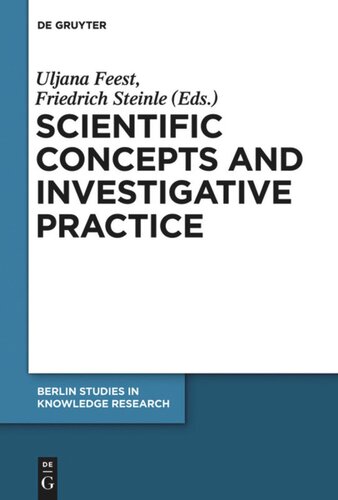

Most ebook files are in PDF format, so you can easily read them using various software such as Foxit Reader or directly on the Google Chrome browser.
Some ebook files are released by publishers in other formats such as .awz, .mobi, .epub, .fb2, etc. You may need to install specific software to read these formats on mobile/PC, such as Calibre.
Please read the tutorial at this link: https://ebookbell.com/faq
We offer FREE conversion to the popular formats you request; however, this may take some time. Therefore, right after payment, please email us, and we will try to provide the service as quickly as possible.
For some exceptional file formats or broken links (if any), please refrain from opening any disputes. Instead, email us first, and we will try to assist within a maximum of 6 hours.
EbookBell Team

4.8
64 reviewsRecent philosophy and history of science has seen a surge of interest in the role of concepts in scientific research. Scholars working in this new field focus on scientific concepts, rather than theories, as units of analysis and on the ways in which concepts are formed and used rather than on what they represent. They analyze what has traditionally been called the context of discovery, rather than (or in addition to) the context of justification. And they examine the dynamics of research rather than the status of the finished research results.
This volume provides detailed case studies and general analyses to address questions raised by these points, such as:
- Can concepts be clearly distinguished from the sets of beliefs we have about their referents?
- What - if any - sense can be made of the separation between concepts and theories?
- Can we distinguish between empirical and theoretical concepts?
- Are there interesting similarities and differences between the role of concepts in the empirical sciences and in mathematics?
- What underlying notion of investigative practice could be drawn on to explicate the role of concept in such practice?
- From a philosophical point of view, is the distinction between discovery and justification a helpful frame of reference for inquiring into the dynamics of research?
- From a historiographical point of view, does a focus on concepts face the danger of falling back into an old-fashioned history of ideas?